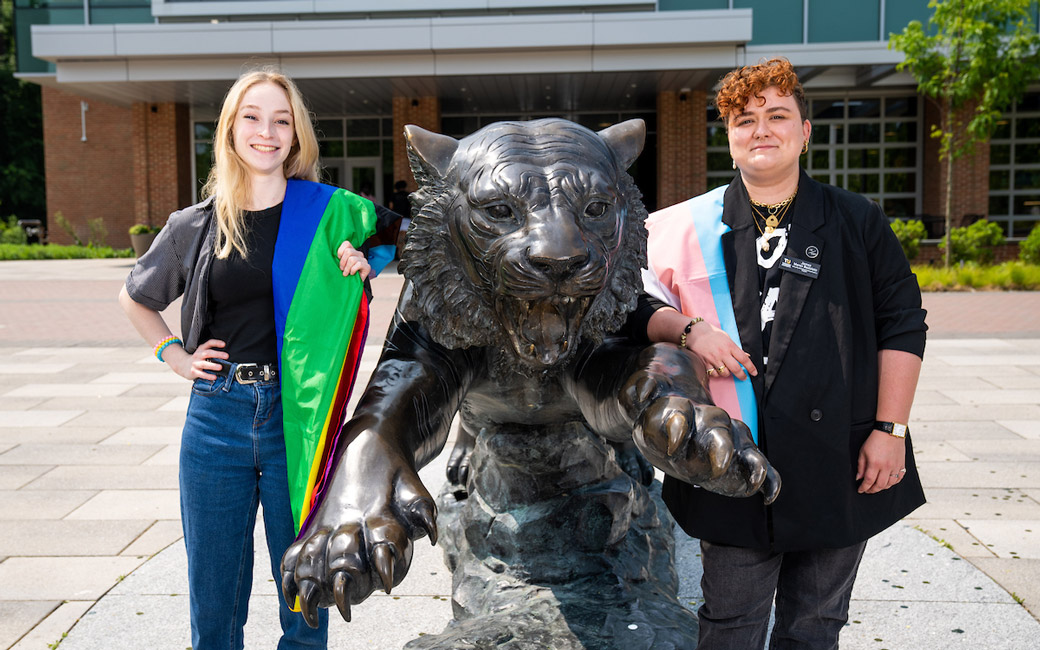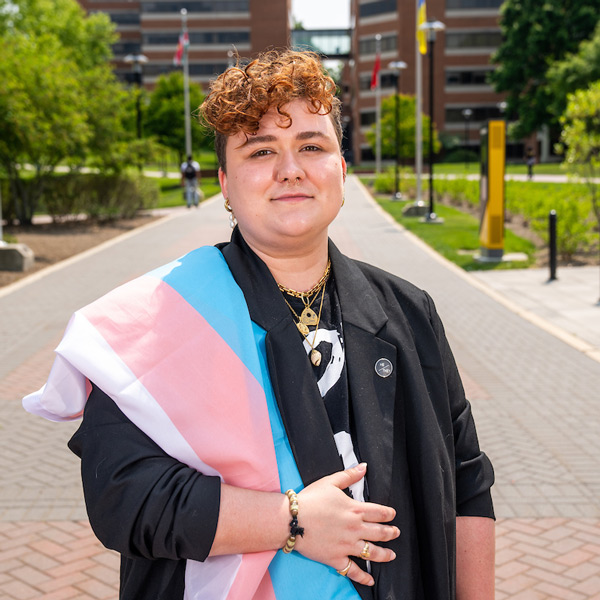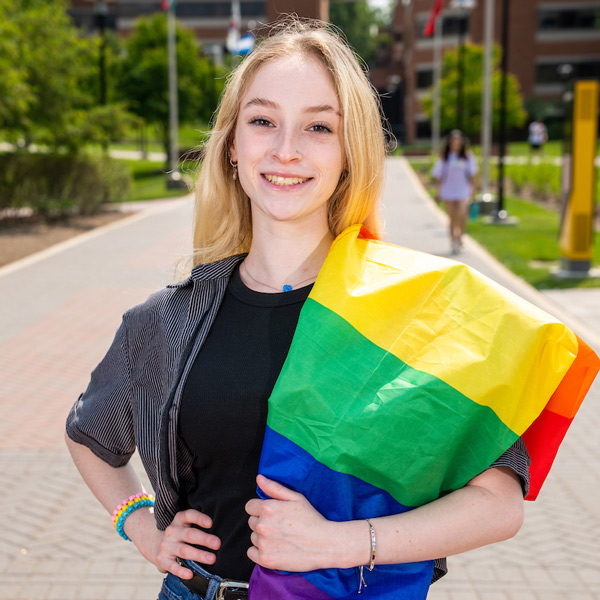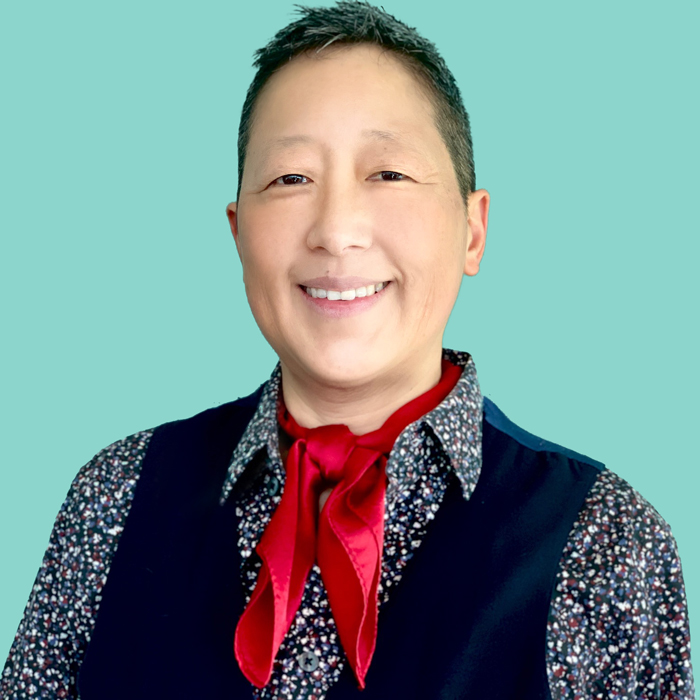Tigers share stories of identity, belonging, support in celebration of Pride Month
How three Tigers found their community, claimed their identities, discovered ways to thrive
By Pamela Gorsuch on June 5, 2023

Across the globe this June, millions of individuals will come together at parades,
parks and advocacy events in honor of Pride Month. The annual recognition of LGBTQIA+
culture and rights originated in 1970 to commemorate the Stonewall Uprising—a watershed
moment in LGBTQIA+ activism. More than 50 years later, people continue to advocate
for equal rights and recognition.
In honor of Pride Month, we spoke to three Tigers who identify as LGBTQIA+ about what
Pride means to them, how they found their communities at TU and the advice they have
for future generations.
On the meaning of Pride:

Pride is often seen as a big celebration, and it absolutely is. But it’s also about taking up space, fighting against discriminatory practices and legislation, and mutual aid. I first went to a Pride event as a newly transitioning, very nervous 26-year-old trans person struggling with isolation and mental health. Connecting with local support organizations and meeting trans elders who had overcome so much to live into their 60s and 70s meant the world to me. It was one of the most joyful and affirming days of my life. – James Badolato (they/them/theirs), administrative assistant in University Marketing & Communication
On finding your community:
I grew up going to a school where Pride clubs were not allowed. When I realized TU had a Queer Student Union (QSU), I immediately wanted to be involved. At QSU meetings and events, I feel completely comfortable and accepted. It’s exciting to know there’s this whole group of people that have lived through similar experiences. I love the sense of safety and community it gives. – Kayla Lasson (she/her/hers), junior majoring in theatre studies
On coming out:

For some people coming out is a one-time thing, but for me that wasn’t the case. I came out to my friends first then my older sister. Their support was the safety net I needed to start the conversation with my family. It was a nerve-wracking process, but it ended with incredible support from all involved. My heart goes out to anyone going through it now. – Kayla
LGBTQIA+ Resources
Learn about support groups, counseling options, gender-inclusive housing and restrooms and other services that support TU’s LGBTQIA+ campus community.
On claiming your identity:
For most of my life it felt like I was going by a stage name. I wanted a name that felt true to who I am, but it never seemed like a possibility. There was a genuine feeling of acceptance when I found out about TU’s chosen/preferred name, pronoun and gender identity request form. It took a couple minutes to complete, and a few days later my name was updated in TU’s email, PeopleSoft, OneCard system and more. I also used the TU brand toolkit to add pronouns to my email signature so everyone knows how to address me. While it’s not all-encompassing, it brought tears to see my true name used in these official capacities. Being recognized for my true self gave me a dignity I had never been afforded before, and that was very powerful. – James
Get information on the chosen/preferred name, pronoun and gender identity request process, including instances in which TU is required to use a legal name, resources for changing your legal name and FAQs.
Learn about the processOn the connection between community and health:

Humans thrive best when we have multiple forms and levels of social support. That can be within a family or in institutions like schools or places of work. There are so many different types of communities available, from online communities to campus organizations like the Queer Student Union, In the Life, GenderBLUR and the LGBTQ+ Faculty and Staff Association. It’s really important we find those communities for ourselves and help others access them too. – Sel Hwahng (they/them/theirs), assistant professor of women’s and gender studies and editor and co-author of the forthcoming book, “Global LGBTQ Health: Research Policy, Practice and Pathways” (in press, Springer Nature)
On the best way to experience Pride:
As someone who has been to a lot of Pride celebrations, I think it’s best experienced when it’s a new opening for people. For those who haven’t experienced a Pride event or parade, seeing the celebration and acceptance firsthand can be really important. – Sel
Join TU at Pride
Celebrate with fellow Tigers at Baltimore Pride:
Pride Parade, June 24, 1–3 p.m. – Join TU students, faculty and staff to march for unity and show resilience. Transportation
is available and will depart from the Union Garage at 11:30 a.m. Contact pride AT_TOWSON for details.
Pride in the Park, June 25, 12–6 p.m. – Visit the TU tent to grab swag and connect with campus resources. A range of vendors, performances and food will be available.
On advice for younger generations:
One of the best parts of the LGBTQIA+ community is getting to have a chosen family. So many resources are available to support you. It can be scary to reach out, but it’s so worth it. Visit the Center for Student Diversity, look into the Queer Student Union or attend an LGBTQIA+ event at TU or in the greater Baltimore area. We have so much to offer. You’re not alone. - James